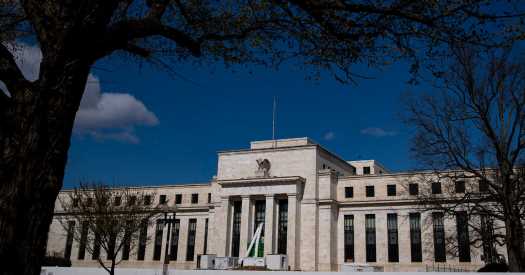Stress Tests Show Largest Banks Are Sturdy, Fed Says
The Federal Reserve said on Wednesday that the largest U.S. banks were well capitalized and prepared to withstand large economic and financial market shocks, after it subjected them to a series of hypothetical disaster scenarios.
The regulator’s yearly stress testing of the banks, which it started performing after the 2008 financial crisis, revealed that they could withstand a 40 percent drop in commercial real estate prices and aggregated losses of more than half a trillion dollars without failing.
The scenarios that the 23 biggest banks faced also included a severe economic recession, 10 percent unemployment and a large drop in home prices.
The goal of regulators was to determine whether the banks were holding enough cash or equivalent instruments to cover sudden, unexpected losses. Once banks know whether the regulators consider them to be sufficiently capitalized, they can decide how much money to return to shareholders through buybacks and dividends.
Senior Fed officials said on Wednesday that they did not expect the banks to announce any plans to distribute cash to shareholders until Friday.
One new thing this year: Regulators explored whether the eight banks most heavily involved in trading stocks, bonds and other financial products could ride out a sudden panic in those markets and hinted that future stress tests could incorporate similar scenarios, even though they do not contribute specifically to banks’ capital requirements.
“Today’s results confirm that the banking system remains strong and resilient,” said Michael S. Barr, the Fed’s vice chair for supervision. “At the same time, this stress test is only one way to measure that strength. We should remain humble about how risks can arise and continue our work to ensure that banks are resilient to a range of economic scenarios, market shocks and other stresses.”
The tests provided another status report on the banking industry after the crisis this spring, when four lenders, including Silicon Valley Bank, collapsed, throwing the Fed’s ability to monitor them into question. While Wednesday’s results seemed to confirm what regulators had been telling Congress recently, that the banking system is safe and stable, they are not likely to help settle the matter of whether the Fed’s regulatory practices are strong enough.
The process of testing the banks for this year’s results began long before the banking crisis in the spring, and the scenarios under which each bank was examined were designed before the failures, so they did not represent any sort of response to the crisis, Fed officials said. But they did feature some of the same factors that brought down regional banks like First Republic Bank, including rising interest rates and falling commercial real estate values.
Fed regulators are following a set of rules put in place during the Trump administration that critics say weakened oversight of banks in a certain size range — those smaller than the too-big-to-fail giants but larger than some regional and community banks. One sign of that reduced oversight was clear in Wednesday’s results: Not all the banks tested in 2022 were retested in 2023.
Officials said on Wednesday that they were reviewing the rules governing stress tests along with other aspects of their bank oversight procedures to determine whether adjustments could be made to help prevent another crisis.
Emily Flitter covers finance. She is the author of “The White Wall: How Big Finance Bankrupts Black America.” @FlitterOnFraud
Source: Read Full Article

